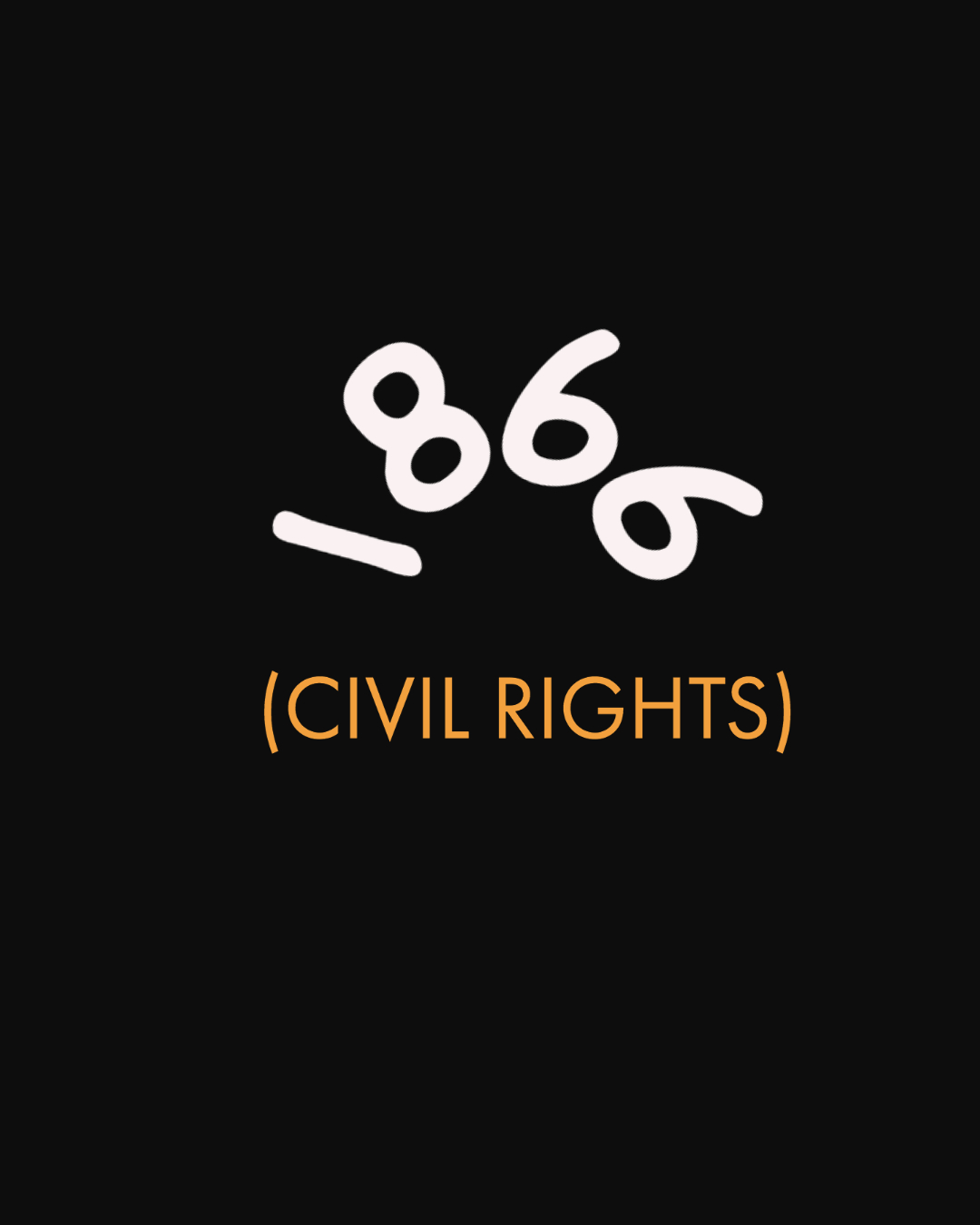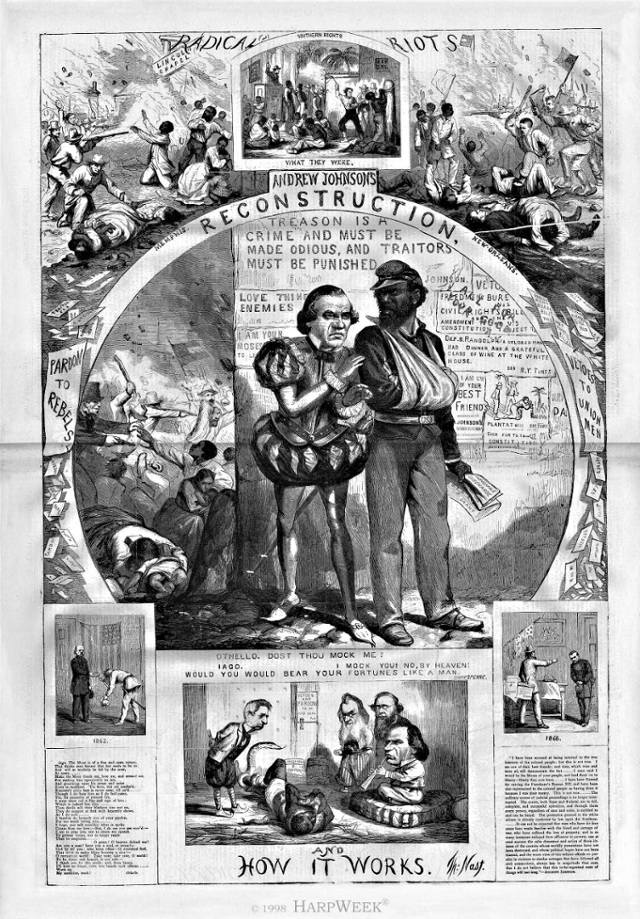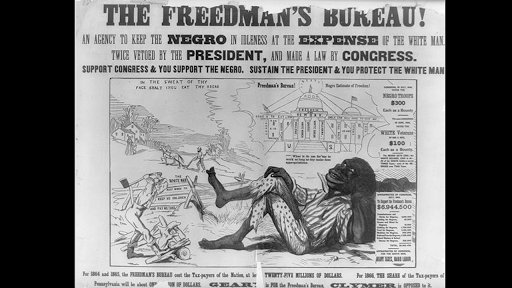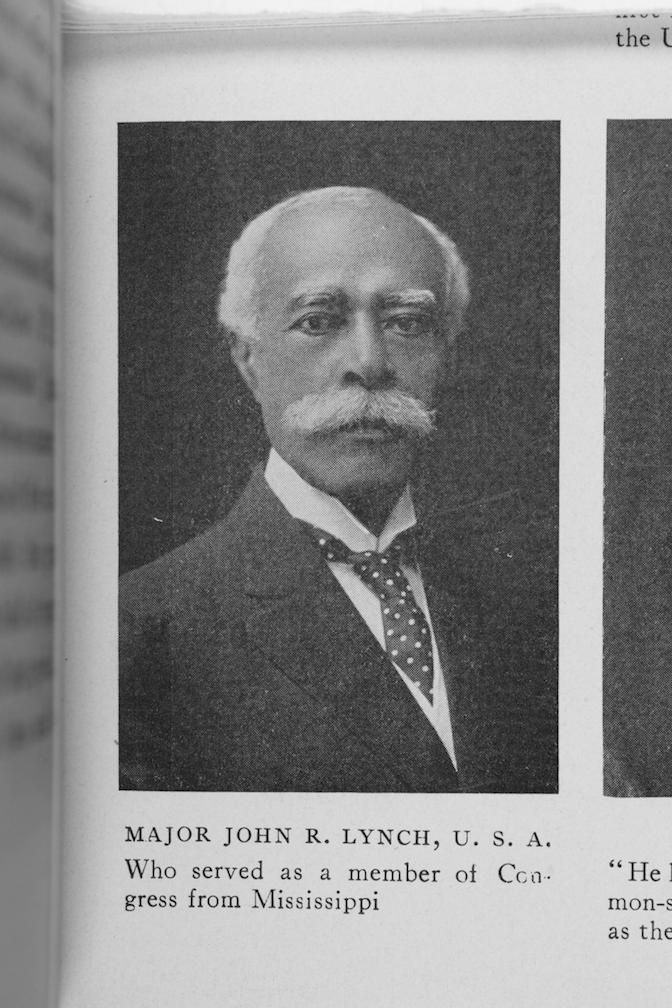
18 Aug 1866 Civil Rights ACT and its blunders
The United States Congress enacted the Civil Rights Act on April 9th, 1866 (despite being vetoed by President Andrew Johnson), leading to the declaration that all individuals born in the country were to be citizens despite their race, color, and any other conviction. The Act was ratified in 1870 and became a major steppingstone for the African Americans who had been fighting for equitable rights and recognition as being human . As US citizens, they were allowed to administer contracts, take somebody to court and be sued, and provide court evidence. They were also allowed to inherit, sell, and lease property. Individuals who were convicted of denying these rights to African Americans were to be charged with an offense. They would be charged a fine of up to USD 1,000 or face jail time of a year. However, the upsurge of white supremacists’ groups like the Ku Klux Klan (KKK), Redshirts, and Whitecappers destabilized the effectiveness of the Act leading to a massive failure of guaranteeing African Americans their legal rights as citizens of the United States. These hate groups continued to torture, segregate, kill, and lynch African Americans who were constitutionally equivalent to them.
Ultimately, the Act failed to protect African Americans and other people of color from institutional racism. President Andrew Johnson maintained his stance that the white race was more superior to the black race (according to his letter to the Commissioner of Public Buildings, Benjamin B. French). On the other hand, this Civil Rights Act paved the way for subsequent civil rights movements that would see an upsurge of African American leaders who aimed to fight racial segregation, KKK, Black Codes and the roles played by ill willed non African American leaders, active in suppressing African American’s rights to vote and be voted for. To that end, only a minimal of the African Americans were allowed to vote despite the Act stating that all Americans had the right to vote regardless of their race and color. After long years of servitude/ bondage, the bill offered the “Negro”race a path to self-determination and freedom- a move that President Andrew Johnson uncompromisingly opposed in favor of the white race.

According to President Johnson, the Southern states were to decide on the issues that were best for their progression. He asserted that African Americans could not manage themselves. Hence they did not deserve the voting right. Andrew Johnson vetoed the bill that aimed to fight the Black Codes and the expansion of the roles of the Freedmen’s Bureau. Johnson differed with federal intrusion levels citing it as a move towards consolidating the national government powers. His steps negatively affected the Act and the general progress of African Americans. The Democrats (following their hate for the African Americans) circulated negative ideas that purported about the tragedies that would face the country in case African Americans were allowed to vote and have the same liberties as whites. These sentiments were accompanied by negative propaganda issued throughout the country via music, movies, plays, books, newspapers and other advertisements.

Despite the challenges in seeking equity immediately after the civil war, funding for education for blacks in the South came from multiple sources. From 1860 to 1910, religious denominations and philanthropies contributed roughly $55 million. Blacks themselves through their churches, and other civic oraganizations contributed over $22 million. While politicians were grappling with the ACT, multiple all black settlements were created which produced great minds such as John Lynch who was in favor of the 1875 Civil Rights Bill.. Lynch was just 26 years when he won a seat in congress. He expressed white supremacy groups advanced their agendas ” “by the power of the bullet and not by the power of the ballot.” Now in 2020, we are be faced with the same ballot challenges and comprise of civil rights due to insecurities of Donald Trump.

John R. Lynch, Reconstruction-era political leader and author, 1911 (New York Public Library [Image ID: 1239435])
GO VOTE!



No Comments